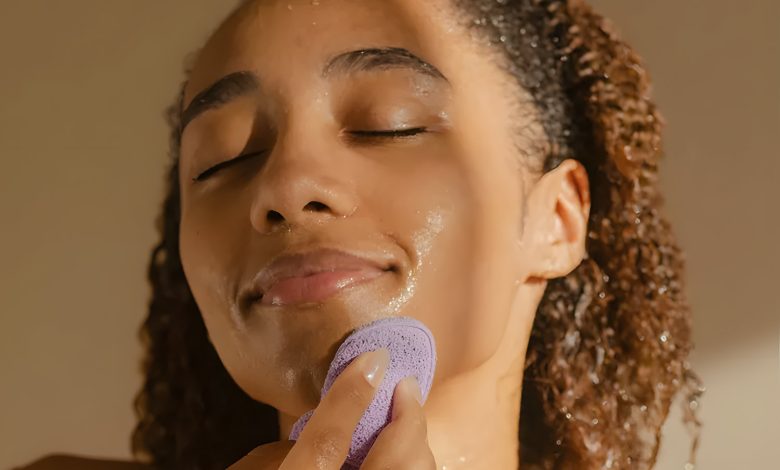
Some people may think that cleansing more often is better, but this is not always true. Over-cleansing can cause your skin to become red, dry or irritated if you wash your face more often than twice daily. We asked board-certified dermatologists for their explanations of over-cleansing, from how it occurs to how to treat the condition.
What is over-cleaning?
It can be caused by a number of factors, from washing your face frequently to using harsh products. Dr. Rubin explains that washing your face twice daily or more is considered over-cleansing. However, it depends on the individual. Someone with oily or combination skin may be able to tolerate more frequent cleansing. Dr. Parikh says, “I don’t insist on washing my face every morning and evening just to maintain a routine.” “[The main thing is] maintaining a healthy barrier on the skin while cleansing.”
Dr. Parikh says the products that you use for cleansing can also have an impact. This is especially true if they lather up too much, stripping the skin’s essential layers. He says that if you use excessive hot water, or products with foaming surfactants (which tend to be irritating), you may overcleanse your face, even if it is only once a day. The key is to not irritate the skin just for the sake cleansing. This can compromise your natural protective barrier.
Signs that You Are Over Cleaning
Our experts have identified some symptoms and signs that may indicate you are washing your face too often.
- You may have small red bumps on your lips, nose, and eyes.
- Itchy skin
- Redness
- Flaky skin
- Skin that is tight and dry
- Face eczema or other skin inflammations
- Skin irritation and burning when using skincare
Over-Cleaning
“Over cleaning leads to skin barrier break down, which can lead to [symptoms such as] redness and inflammation, stinging, burning, tightness and flaking of inflammatory conditions,” Dr. Rubin states.
Over-cleansing can also cause dry, irritated and even abrasive skin by disrupting the pH and oil levels of the skin. “It feels good to wash your face and feel the tightness. But when you strip away your skin’s natural oils and pH levels, you are compromising its ability maintain homeostasis, which is necessary for healthy skin function.
Dr. Parikh says that the goal of cleansing is to cleanse your skin without stripping. He says that dehydration of the skin can cause inflammation. You want to avoid this. Parikh warns that excessive cleansing can cause skin irritation and inflammation. “Inflammation” is at the heart of many skin problems.
How to prevent and treat over-cleaned skin
You should cleanse your skin with lukewarm, sterile water at least once or twice daily. Byrdie recommends cream cleansers, such as Cetaphil Gentle Skin Cleanser, or oil cleansers, like Burt’s Bees Cleansing Oil.
Dr. Parikh stresses that double cleansing is not always a bad thing when wearing makeup. He says to start with a micellar cleanser, which will remove excess dirt and makeup. Then, use a gentle, hydrating face wash to finish.
After cleansing your face, Dr. Parikh & Dr. Rubin suggest limiting exfoliants as they can irritate the skin. Instead, use hydrating skincare to replenish moisture in your skin. Include soothing serums and moisturizers in your skincare routine.
Takeaway
It is fine to cleanse your skin twice a day. If you experience irritation, it may be necessary to reduce the frequency of washing your face. You should also re-evaluate what cleansers to use. Over-cleansing your face can cause irritation and dryness, as well as alter the pH of your skin. It’s important to not overdo. Consult a dermatologist if you are struggling with excessive cleaning.




